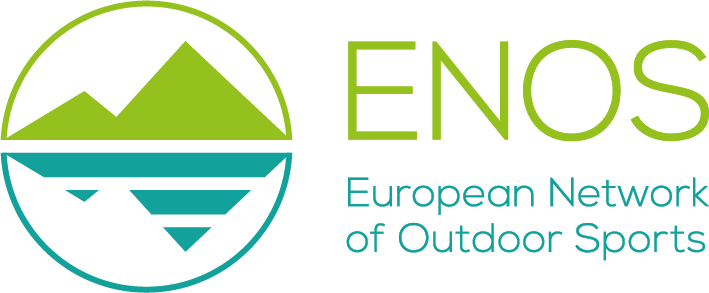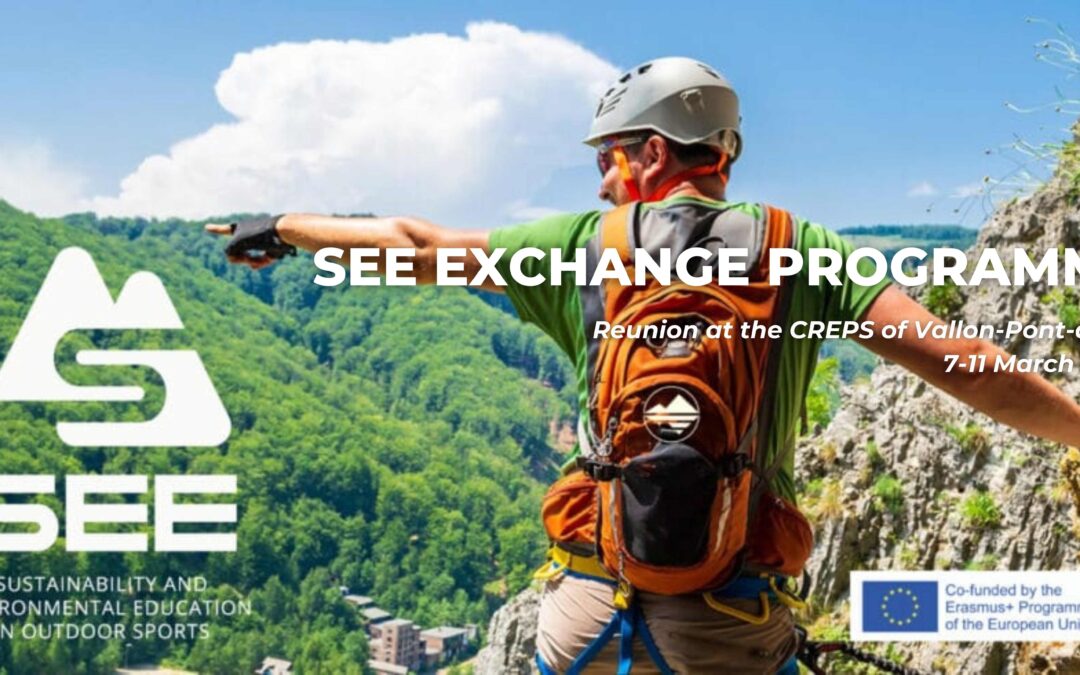While the last discussions, planned in Sweden, had been cancelled for health reasons, the partners of the SEE project will finally be able to meet again, from 7 to 11 March, in order to finalise the construction of a relevant toolkit for environmental education through nature sports… But this time, in France, at the CREPS of Vallon-Pont-d’Arc!
SEE: a project for environmental education through nature sports
Financed for three years by the Erasmus + programme, the Sustainability and Environmental Education in Outdoor Sports (SEE) project aims to develop, through the constitution of a solid European network and increased sharing of knowledge and skills, concrete instruments for environmental education through nature sports. The objective is to build a real toolkit giving sports educators the keys to learning about ecological issues while practicing outdoor activities with any public.
An event organised at the CREPS in Vallon-Pont-d’Arc, an active member of the project
Although two initial discussions have already taken place in this respect, in Serbia and Portugal, the partners involved in the SEE project will attempt to finalise this toolkit by meeting again next March.
Co-organised by the International Mountain Bicycling Association (IMBA) and the European Centre for Nature Sports (CESN), the event will be held for a week at the CREPS in Vallon-Pont-d’Arc. Whether through training or via the National Resource Centre for Nature Sports (PRNSN) that it hosts, the latter is, in fact, particularly involved in issues relating to sport and the protection of natural environments. Also, its partnership – more than twenty years old – with the management syndicate of the Natural Reserve of the Gorges de l’Ardèche (SGGA), reinforces its weight as a sports organisation committed to environmental protection.
Time for exchanges and practice of nature sports on the programme
Thus, in addition to immersing the partners in the heart of a sports training centre, this week will be an opportunity for them to discover, through numerous outdoor activities – climbing, caving, mountain biking followed by a bivouac in the natural park -, the environmental education tools already put in place by local professionals in the sector.
Coupled with more theoretical exchanges, these activities should lead to the creation of a concrete environmental education toolkit, in order to think, afterwards, about its diffusion. Although this event will not be open to the public – in order to facilitate exchanges and reflection – you will, however, be informed very quickly of the progress made by the working group.

